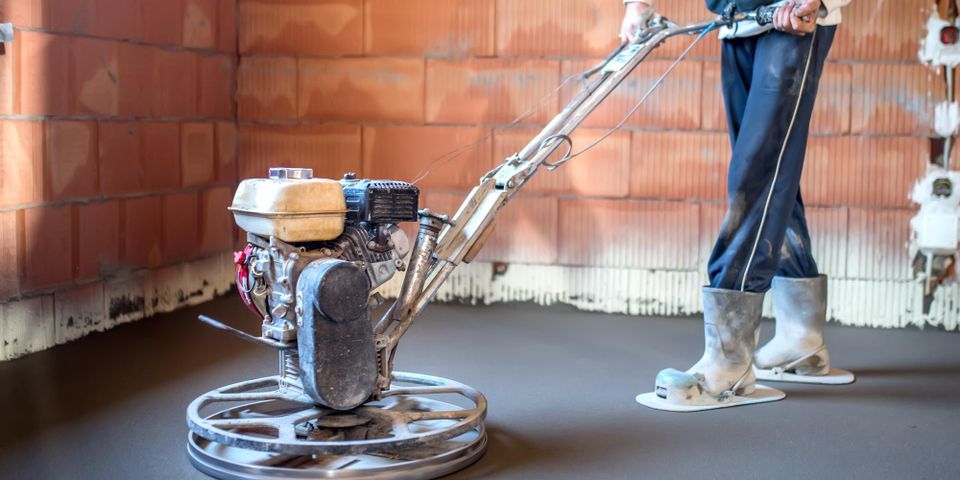
Gypsum is often added to cement and used for underlayment in a wide variety of construction projects. When you hire a concrete contractor to begin constructing your commercial building, ask them about gypsum cement underlayment. The unique mixture offers benefits you won’t get with normal cement. Here’s what you should know.
A Guide to Gypsum Cement Underlayment
What Is It?
Gypsum is a soft, naturally occurring mineral made of calcium sulfate and water. Its deposits are found in lagoons and old sea beds, where the saltwater has repeatedly evaporated and been replaced with new water over time.
 Cement is a mixture of calcium, silicon, aluminum, iron, and other similar chemicals. Gypsum is added to the cement during the final grinding process, just before the water is mixed in. As soon as the water is added, the cement begins to harden.
Cement is a mixture of calcium, silicon, aluminum, iron, and other similar chemicals. Gypsum is added to the cement during the final grinding process, just before the water is mixed in. As soon as the water is added, the cement begins to harden.
What Are the Benefits?
Gypsum cement underlayment has advantages that you won’t get with normal cement. The gypsum slows down the rate at which the mixture hardens, which allows for more time to manipulate and form the cement.
Gypsum is also naturally fire-resistant, as it releases steam when exposed to flames. This moisture significantly slows down the spread of fire.
The gypsum prevents the cement from shrinking as it sets, which helps the underlayment fill all joints and cracks. This provides better acoustic insulation, since cracks are a common source of sound transfer between the floors of a building. This quality also increases strength and hardness.
If you want a contractor who uses gypsum cement underlayment, contact Pro-Crete Systems of Florida in Largo. In business for over 30 years, they’ve built a reputation for quality craftsmanship, excellent products, and competitive pricing. Their unique flooring solutions include gypsum toppings, acoustical sound mats, leveling repairs, and specialty coatings. Learn more about their services on their website, or call (727) 526-8090 to request an estimate.
About the Business
Have a question? Ask the experts!
Send your question

